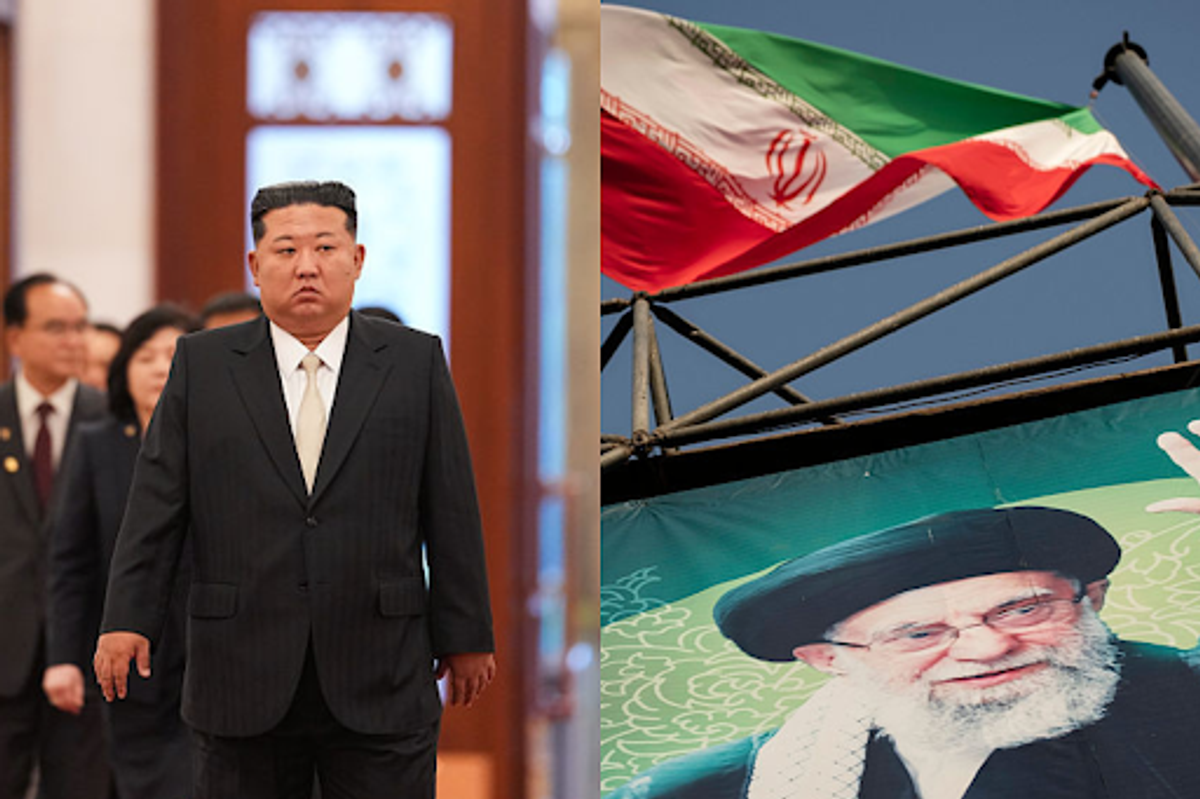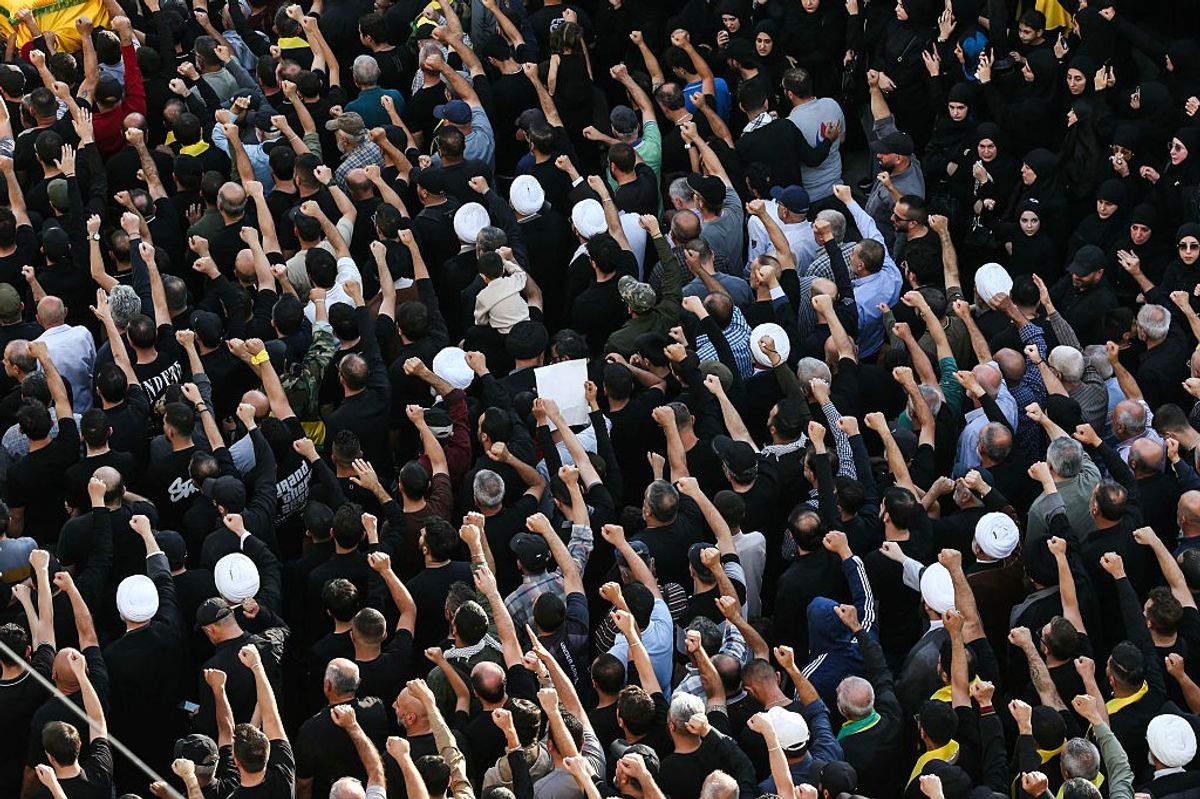OPINION — It has been widely acknowledged that the Houthi attacks against Israel and international shipping that followed Hamas’s deadly October 7th attacks last year, were used to defuse a domestic crisis. Shortly before that terrible day, the Houthis were facing unprecedented opposition at home due to growing resentment over their misrule. That changed in the aftermath of the October 7 attacks, and Israel’s war against Hamas in Gaza. Since the Houthis started bombarding Israel and international shipping one year ago, the group has promoted massive public rallies in Yemen to celebrate its “resistance” throughout the territory under their control. It has been generally assumed that the Houthi offensive had redirected public anger, but recent public opinion polls tell a different story.
Not much support on the home front
In fact, the Houthis, who operate from the Yemeni capital Sana’a, are ruling over 20 million people who are overwhelmingly anti-Houthi. While that population may view the Iran-backed terror group more positively than those Yemenis living under the country’s legitimate government, that’s not saying much; the Houthi regime’s popularity maxes out at 8%. This bodes poorly for the Houthis, and foreshadows the continued need for the group to use brutality to maintain control.
That said, while the overall view of the Houthis highly negative, it is also true that between one-third and one-quarter of the Yemeni population endorses the Houthis’ Red Sea attacks, which have been framed as supportive of Palestinians. Fewer than one-fifth of the population opposes these attacks, which have damaged dozens of vessels and rerouted global shipping over the course of a year. But while the Houthi attacks have garnered public support, the Houthis’ efforts to convert this into support for their regime have failed miserably.
Behind the poll numbers
The polling – carried out in July and August – suggests a clear ability among the majority of the Yemeni population to distinguish between the Houthis’ actions and the Palestinian issue, a fact which may be somewhat surprising in light of relentless Houthi propaganda efforts to conflate them. Even among Yemenis condemned to live under the hardships of Houthi rule, which involves constant regime indoctrination and limited access to outside media, there appears to be widespread understanding that the regime is cynical and self-interested above all else. This is a plausible explanation as to why the majority of Yemenis have also assessed that Houthi attacks are unlikely to end the war in Gaza; perhaps they are aware that it is the Middle Eastern equivalent of virtue signaling by a regime that treats its own people so terribly.
What is so interesting about the latest public opinion poll is that it is the exception to the rule that there is no data available about what Yemenis under Houthi rule are thinking. In Houthi-ruled areas, freedom of speech is non-existent – a policy which the group can enforce due to its tight control of the telecommunications infrastructure and with the help of its ruthless security services. Thanks to the recent polling, we now have a clear and compelling indication that support for the group is low; they are less popular, for example, than President Putin of Russia is among the U.S. public.
Watch our weekly show The World Deciphered on The Cipher Brief’s Digital Channel for expert insights into the Middle East, Ukraine, China, AI and more.
While it seems that few in Yemen find Houthi claims regarding Palestine compelling, the group’s propaganda can and should be deflated further. The best way to demonstrate that joining a militia in Iran’s axis of resistance is a losing proposition is by promoting the defeat of axis affiliates in Gaza and Lebanon. In addition, the “religious mandates” that the Houthis exploit to recruit Yemenis into their ranks should be discredited by Israel’s avoidance of steps that indicate a possible change to the status quo on the Temple Mount (Haram al-Sharif) in Jerusalem. Hamas called its latest war against Israel “al-Aqsa Flood” (Tufan al-Aqsa), as it was allegedly carried out in defense of the al-Aqsa mosque on Jerusalem’s Temple Mount; anti-Israel radicals have been inflating threats to this Islamic holy site for generations in order to convince Muslims to sacrifice themselves in the war against Israel, and Israel should avoid adding fuel to that fire. Finally, an eventual end to the fighting in Gaza and Lebanon, concluding with a clear and decisive picture of the axis’s defeat, would diminish the relevance of the Houthi regime’s claimed cause while highlighting its own fragility.
However, this widespread public antipathy toward the Iran-backed militia is not guaranteed to last. This is not because there is a risk that the Houthis will rule Yemen competently and effectively to turn the tide of public opinion in their favor, nor is there a real risk that they can terrorize their Yemeni subjects into loving them. The risk is that the Houthis are working overtime to brainwash the next generation of Yemenis into becoming radical jihadists, in accordance with their extremist Shia ideology. While the older generations likely acknowledge that Yemen had and will likely continue to have its fair share of bad leadership and corrupt politicians, steps like radicalizing Yemeni children in order to turn them into cannon fodder is beyond the pale.
On a strategic level, there is a window of opportunity for the West to take steps which would help Yemenis liberate themselves from the Houthi regime. If the West fails to take seriously the threat posed by the Houthi regime as well as the limited opportunity to eliminate it, public support for the Iran-backed terror group may well skyrocket, when those children the Houthis have inducted into military training summer programs eventually constitute the majority of the Yemeni population. Before Yemen is converted into a North Korea on the Red Sea, and while the Iran-led axis of resistance is on its backfoot, Sanaa is especially vulnerable to threats from within which can be magnified by pressure exerted by external actors who know how to identify and seize an opportunity.
The Cipher Brief is committed to publishing a range of perspectives on national security issues submitted by deeply experienced national security professionals.
Opinions expressed are those of the author and do not represent the views or opinions of The Cipher Brief.
Have a perspective to share based on your experience in the national security field? Send it to Editor@thecipherbrief.com for publication consideration.
Read more expert-driven national security insights, perspective and analysis in The Cipher Brief















